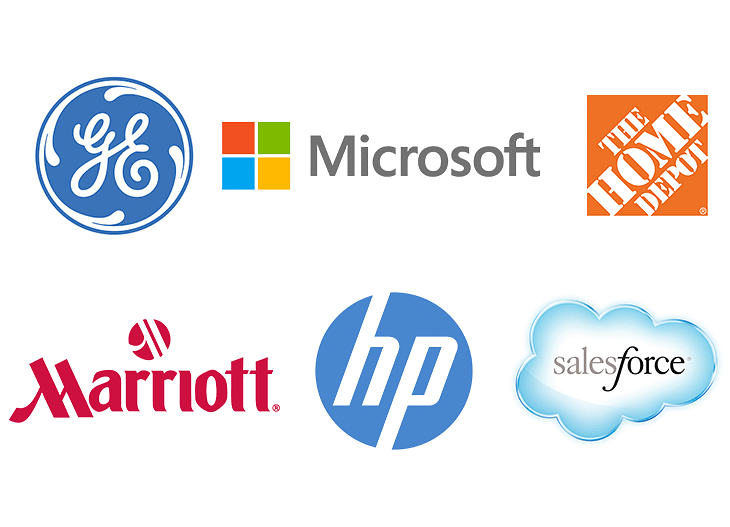Key features
- 365 days course access
- 30+ hours self-paced video
- Access to 15+ hours of live instructor-led online classes
- Around 20 real-life industry-based projects
Course advisor

Matt BaileyExpert Internet Marketer, President of SiteLogic, Author
Matt Bailey is the founder and president of SiteLogic, and the author of Internet Marketing: An Hour A Day. Matt also serves on the Advisory Board for Incisive Media’s Search Engine Strategies Conferences, and is one of the conference’s highest-rated speakers.
About The Course
- Market Motive's Advanced SEO course aids professionals in organically increasing the visibility of their businesses. With this SEO, you will be able to learn SEO concepts and put them to use in industry-related simulations. Students who take this SEO training will learn ways to put their website at the top of a search engine result page and keep it there.
- With this course, you will learn SEO skills like:
- Keyword management and research - How to find and utilize the right keywords for the right niche when developing content
- On-Page and Off-Page Optimization - How to make sure that your site is on the first page of SERPs by meeting all the requirements set by a search engine as well as how to build backlinks
- Analytics - How to make use of analytics to see how well your SEO tactics work and which areas could use improvement
- This Advanced SEO course is ideal for those who want to use SEO to enhance their sites’ user experience. Our advanced SEO training is designed to teach participants on the principles of SEO but to also encourage them to use various, out-of-the-box solutions to solve problems.
This Advanced SEO course trains students to:
- Master fundamental to advanced SEO skills that they can put to use in real life
- Understand what organic traffic is and why and how to attract it to your site
- Comprehend the functioning of search engines and how to make the best use of them
- Collect and analyze data efficiently by using multiple research methods
- Make well-defined marketing decisions by using research effectively
- Acquire skills and techniques to increase your website’s search engine rankings
- Manage a website and troubleshoot problems when required
- Make use of link building to optimize your site’s off-page factors
- Expand your skill portfolio by improving your analytical skills
- Use analytics to make detailed studies of what SEO tactics work for a website and what don't
The search engine optimization training is beneficial for anyone who wants to become adept in SEO.
Professionals in the following roles would particularly benefit from this course:
- Marketing Managers
- Digital Marketing Executives
- Content Writers
- Marketing and Sales Professionals
- Management, Engineering, Business, and Communication Graduates
- Entrepreneurs and Business Owners
Course Preview
Exam & certification
- Complete 85% of the course.
- Complete 3 projects and 1 simulation test with a minimum score of 60%.
This certification course does not have any prior requirements. However, it is advisable that students first complete our Search Engine Optimization (SEO) Foundations course. As long as participants have a basic working knowledge of HTML, search engines, and Microsoft Office, they will be able to learn from this course successfully.
You do not get a separate SEO certification from OMCA. Instead, the OMCA certification for digital marketing includes topics related to SEO.
To get the OMCP certification, you need to:
- Take an OMCA aligned course (provided by Market Motive)
- Register yourself on the OMCA website,
- Pay a fee of $225
- Take the OMCA exam
- Clear the exam by scoring 75%
Request more information
For individuals
For business
FAQs
Search engine optimization (SEO) is the marketing practice of enhancing the organic traffic that comes to your site by adhering to a search engine’s guidelines.
With this SEO certification, participants will be able to perform SEO-related tasks without making mistakes that could cause significant problems for their companies. Additionally, a certificate also acts as a validator; it shows employees that you have been tried and tested in the field of SEO.
Market Motive strives to provide the latest, best-quality content that is up to date with current industry standards. Our experienced trainers are vigilant of all the latest trends and infuse them into our training programs as quickly as possible. From the Panda to the Fred Update, our course has got it covered. We consider every change that happens in the market, and our training content is regularly upgraded and updated to reflect current market trends.
On average, the course would take about 25-30 hours to complete.
The cost of this SEO certification course is $299.
The Market Motive’s exam fee is included in the course cost, while the OMCA certification fee is not.
No additional course material is required. This training course everything needed to study, including enriching video lessons, downloadable workbooks and exercises for practice, and sample projects.
Market Motive’s instructors are well-acquainted with the industry and are certified Subject Matter Experts in their respective fields. They have combined decades of experience and offer invaluable insights into the field of digital marketing.
- Stephane Hamel - Stephane Hamel is one of the biggest names in the domains of Web Analytics. In this module, he trains participants to collect, organize, analyze web traffic data, and improve site performance.
- Matt Bailey - He is the founder and president of SiteLogic and helps participants understand Search Engine Optimization rankings and traffic.
According to payscale, a professional in the field of SEO can earn up to $90,000 a year.
For experienced digital marketers, the job market looks bright and rosy. According to LinkedIn, there are about 40,000+ digital marketing positions in various specialties of digital marketing. In recent times, the number of digital marketing jobs has increased while the number of skilled professionals has not, leading to a boost in demand for qualified professionals in this domain.
With this course, participants will get real-world exposure to SEO tools like Raven, Moz, Majestic, SemRush, and Spyfu to name a few.
You enroll in the SEO training course by making an online payment using any of the following options. After this step, you can check your email for a receipt and access the class after that.
- Visa Credit or Debit card
- MasterCard
- American Express
- Diner's Club
- PayPal
The certification you will get after you complete the SEO course will be given to you by Market Motive.
Yes, you can extend the access period of the SEO training course by paying an additional fee. You can contact Customer Service through our Help and Support portal.
Use the Help and Support link to contact our support team for any problem you may face. The Live Chat link can also be used to chat with someone in real-time with one of our Support team members.
You can reach out to us on the Live Chat link or by using the form on the right side of any page on the Market Motive website. Our customer service representatives will be able to help you clarify your doubts.
Market Motive’s test can be taken twice without a fee. Our advanced SEO training ensures that you can clear the exam on the first go, but if you don’t, then you take the exam once more without incurring a fee.
The Market Motive test can be taken twice without any additional retest cost.
The Market Motive certificate does not expire.
Over 2000 students have taken the Advanced SEO course by Market Motive, and more are on their way to becoming certified.




